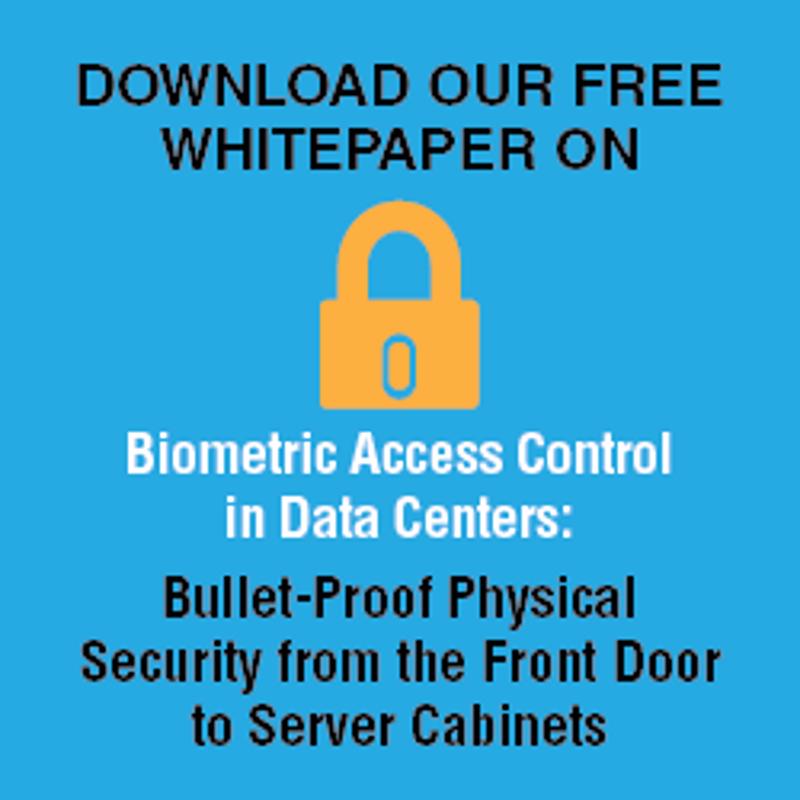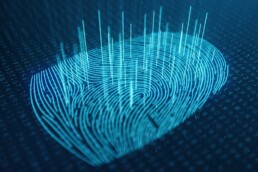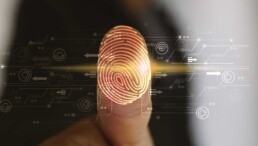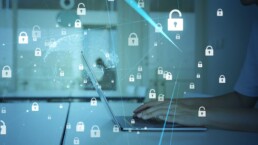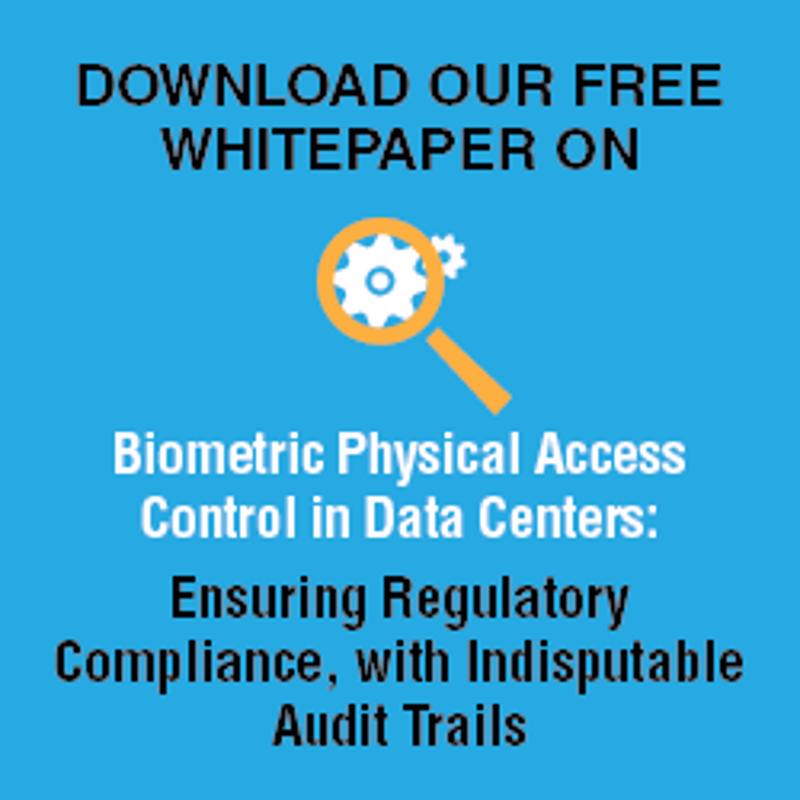The pertinence of biometrics in the age of cloud computing
Despite the ongoing threat of cyberattacks, business leaders around the world are finding new ways to implement the cloud into their daily operations. The advantages of streamlined data storage, backup, workforce globalization and carbon footprint reduction are too useful to ignore.
That said, these operations would be wise to keep cybersecurity in mind. It's hard to know when or where a hacker will strike, so it's best to be prepared for any possible threat. This emerging sentiment has created a fertile atmosphere for preventative methods such as encryption, data decentralization and biometrics. Meanwhile, these strategies will remain pertinent so long as the cloud market continues to grow.
Lofty projections for cloud computing
451 Research projects cloud market revenue to reach nearly $20 billion by the end of 2016, Firstpost reported.
"Cloud computing is on the upswing and demand for public cloud services remains strong," Yulitza Peraza, an analyst of quantitative services with 451 Research, told the news outlet. "However, public cloud adoption continues to face hurdles including security concerns, transparency and trust issues, workload readiness and internal non-IT-related organizational issues."
The market research group conducted a survey and found that only 12 cloud service providers accumulated more than $75 million in revenue in 2012. On the other end of the spectrum, 83 percent of cloud vendors recorded $15 million or less of revenue in 2012.
Survey identifies positive feedback for the cloud
Tata Communications recently conducted a survey of IT managers and found that 65 percent of respondents say that cloud computing has expedited technology access. Another 83 percent of respondents said that they are experiencing unexpected benefits with the cloud, such as increases in productivity and reduced costs.
"Cloud technologies are really helping to drive more information technology standardization," John Hayduk, the chief technology officer at Tata Communications, told the news outlet. "So tasks like creating a server can be done virtually, and not require any real human intervention to connect or install a server. In the cloud application space, you simply have to create a commercial relationship to get access to the service and start using."
Biometrics make sense for cloud users
As the cloud continues to find its way into more and more workplaces, business leaders should consider different forms of biometric security. This technology uses personal identification, such as fingerprints or vocal recognition, to ensure access control for only the right employees. Yet the most sure-fire biometric technology is a dual-access system, which requires the IDs of two individuals at the same time.
Related Articles
Nothing found.
Ongoing presence of hackers emphasizes need for biometrics
Despite the many benefits of cloud computing, a significant portion of business leaders and political agencies across the globe are avoiding this kind of data aggregation because of serious cyber threats. By taking a quick look at the news cycle, you'll find that their fears are justified.
From high profile data breaches against Sony Pictures and bitcoin to less discussed cyberattacks against hospitals and federal entities, hackers are roaming data centers and disrupting regular business activities. While tech engineers and IT managers are doing their best to weather the storm, it has become increasingly clear that many businesses and organizations will need much greater cybersecurity measures going forward.
State Department faces ongoing hacker threats
According to The Wall Street Journal, the U.S. Department of State confirmed hackers in its network three months ago, yet has been unable to root them out. The National Security Agency and external contractors have done their best to assist the agency, but their efforts haven't been fruitful. That said, this isn't unusual territory for the State Department.
"We deal successfully with thousands of attacks every day," Marie Harf, the spokeswoman for the State Department, said in a written statement, the news outlet reported. "We take any possible cyber intrusion very serious – as we did with the one we discussed several months ago – and we deal with them in conjunction with other relevant government agencies."
Russian hacker extradited to United States
A Russian hacker has been extradited to the U.S. and recently appeared in a federal court in Newark, New Jersey, according to the Department of Justice. Vladimir Drinkman, a 34-year-old hacker from Syktyvkar and Moscow, Russia, has been charged as a contributor to the data theft of more than 160 million credit card numbers, which led to hundreds of millions of dollars in losses.
"Hackers often take advantage of international borders and differences in legal systems, hoping to evade extradition to face justice," said Leslie R. Caldwell, Assistant Attorney General of the Justice Department's Criminal Division. "This case and today's extradition demonstrates that through international cooperation and through great teamwork between the Department of Justice and the Department of Homeland Security, we are able to bring cyber thieves to justice in the United States, wherever they may commit their crimes."
Political agencies should embrace biometrics
No matter the federal agency, executives should adopt biometric technology to better protect sensitive intelligence against hackers. This form of data center security calls for personal identification and ensures access control to only the right workers.
Related Articles
Nothing found.
As cloud market grows, biometrics gain relevance
The proliferation of cloud computing has streamlined operations for a wide range of businesses across the globe. Chief executives are gradually discovering the many benefits of the cloud and are adapting their business models accordingly.
The cloud can help ease the processes of data storage, access, backup and sharing, the last of which has been to shown to bolster employee engagement and collaboration. The technology can also significantly reduce a company’s carbon footprint and globalize a workforce at relatively inexpensive costs. Yet as more businesses and agencies adopt the cloud, cybersecurity will become increasingly important.
Study highlights growth of cloud sector
In a recent survey on the state of the industry, conducted by cloud management firm Rightscale, 93 percent of respondents said that they are running applications or experimenting with infrastructure as a service. Meanwhile, 82 percent of businesses use a hybrid cloud strategy in the beginning of 2015, compared to 74 percent over the course of 2014.
“The tide of enterprise cloud adoption has shifted from shadow IT to strategic adoption led by central IT teams,” said Michael Crandell, CEO of Rightscale. “As enterprise IT has become more open to public cloud and more comfortable with cloud security, it is now in a strong position to broker cloud services to internal customers and drive cloud adoption forward. In the next year, organizations expect to shift more workloads to cloud, with public cloud workloads growing faster than private cloud.”
Cloud providers tighten the reins
The days of unlimited access to public cloud networks seem to be coming to an end, TechTarget reported. After a few years of security lapses, unpredictable costs and a lack of visibility, cloud providers are tightening up their policies.
“It didn’t become apparent for over a year – the time it took for a budget cycle. And then, the [chief information officer] had to explain to the [chief financial officer] why we were over budget and why the available budget for infrastructure projects wasn’t there,” an infrastructure capacity management specialist with a global entertainment firm told the news outlet.
Biometrics can secure cloud networks
Any company that is investing heavily in cloud computing would be wise to implement biometric technology into their business model. This form of data center security requires personal identification to ensure that only the right employees have access control to confidential information. Dual-access systems, which call for two simultaneous IDs, such as a fingerprint and PIN, have been shown to be one of the most effective forms of cybersecurity.
Related Articles
Nothing found.
Cloud users should implement biometric technologies
Investors have been actively engaged in the cloud computing sector over the past few years. No matter the focus – seed stage, later stage or everything in between – they clearly recognize the value of this swiftly rising technological trend. Meanwhile, business leaders are interested in the cloud because of its ability to streamline operations and ease the processes of storing, accessing, sharing and backing up large batches of valuable information.
Yet despite the wide range of cloud benefits, chief executives are nonetheless concerned with the threat of data breaches. There are a variety of common cybersecurity measures in practice, such as encryption and decentralization. However, as the cloud becomes a central part of businesses across the globe, biometric security should also be a major priority.
Beckon raises $13 million for cloud marketing platform
According to the Silicon Valley Business Journal, Beckon, a marketing intelligence software company, has secured $13 million in a Series B raise. The company will use the capital to further develop its cloud-based marketing strategy for major corporations such as Microsoft and Coca-Cola.
"We're now working daily with CMOs and senior marketing executives from the world's best loved brands," said Beckon CEO Jennifer Zeszut, according to the news outlet. "Our clients are some of the savviest marketers there are, but they're been wrestling with IT for years to get help with omni-channel data management and analytics."
CloudBees announces $23.5 million raise
CloudBees, a cloud provider based in Los Altos, California, has raised $23.5 million in an effort to further expand its national footprint. Longtime investor Lightspeed Venture Partners led the round. A group of existing investors – Verizon Ventures, Blue Cloud Ventures and Matrix Partners – also participated in the investment.
"This investment in CloudBees tops a year of continuous growth and acceleration, fueled by the adoption of continuous delivery as companies in all markets realize that software is eating the world," said Sacha Labourey, the founder and CEO of CloudBees. "We will use the additional capital to serve the growing demand for Jenkins-based solutions worldwide, to continue to capture market share and to further cement our position as the continuous delivery leader."
Cloud users should adopt biometric technology
To ensure access control for only the right employees, companies that are adopting the cloud into their business model would be wise to consider biometric security or dual-access systems. These stringent forms of data center security require personal IDs before enabling access to valuable data.
Related Articles
Nothing found.
Biometrics should be a part of Apple and Amazon expansions
The U.S. economy finished 2014 on a high note and seems poised to continue its upswing over the course of the new year. Recent polls indicate that consumer confidence is rising. The investment community is fully engaged in a variety of startups from many different sectors. The vast majority of economists and analysts predict that the financial vitality will hold steady over at least the next few months. These effects have significantly bolstered business activity, thereby creating expansion opportunities for tech companies across the U.S.
However, as these major tech companies look to improve their infrastructural capabilities and grow their workforce, they will have to be cognizant of data breach threats. Cybersecurity is of the utmost importance in the digital age.
Apple to build new data center in Phoenix suburb
Apple recently announced that it will spend approximately $2 billion over the next 10 years so it can open a data center in Mesa, Arizona, a suburb of Phoenix, according to the San Francisco Chronicle.
Arizona Governor Doug Ducey praised the decision and said that it proves the state's quality as a supporter of tech business.
"This multibillion dollar project is one of the largest investments we've ever made, and when completed it will add over 600 engineering and construction jobs to the more than 1 million jobs Apple has already created in the U.S.," the company said in a statement, according to the publication.
Amazon on the rise in Oregon
Amazon may build as many as 11 data centers in Oregon, according to Oregon Live. The company already runs four data centers in eastern Oregon, but hopes to significantly bolster its operations in the state.
The news outlet noted that data centers are the second greatest part of Oregon's tech industry in regards to capital investment. Companies such as Google, Apple, Facebook and Amazon have all flocked to the state because it doesn't have a sales tax on computers that operate server farms. Oregon also exempts certain data centers from standard property taxes.
Biometrics are an essential part of tech growth
As tech businesses such as Apple and Amazon take advantage of the strong financial climate, they will need to shore up their cybersecurity measures as well. While encryption and decentralization are worthwhile tactics, biometric technology has been shown to be the most effective security strategy. And for even more effective management of access control, chief executives should consider a dual-access system.
Related Articles
Nothing found.
Cloud-heavy businesses should implement biometric technology
The proliferation of cloud computing has enabled businesses across the globe to streamline their operations in a variety of ways. The cloud's abilities to ease and expedite data storage, access, backup and sharing – the last of which encourages workplace collaboration – are perhaps the most widely cited reasons for adoption. There are many other benefits on top of these, such as the cloud's ability to a significantly reduce a company's carbon footprint and the capability of an organization that uses cloud computing to quickly globalize its workforce.
Yet despite these positives, the threat of data breaches continues to be a serious concern for the vast majority of chief executives. Recent high-profile attacks against Sony Pictures, bitcoin, Home Depot, Target and a host of others, have renewed these widespread fears. For some business leaders, their lack of faith in cybersecurity measures has led them to avoid the cloud altogether. However, for many other operations, as the news cycle continues to tell us, the advantages of cloud computing are too beneficial to ignore.
Marriott offers the cloud to guests through IBM partnership
Marriott, the popular hotel chain, has reached a deal with IBM that will bring the software company's cloud service to more than 4,000 properties across the globe. Robert LeBlanc, senior president for IBM Cloud, said that business leaders are beginning to gain a better understanding of the importance of the cloud in the digital era. Bruce Hoffmeister, global chief information officer of Marriott International, echoed this sentiment.
"Marriott continually transforms its technology to ensure we provide a seamless and enjoyable experience for guests throughout their entire stay," Hoffmeister said. "IBM Cloud provides the analytics to see early stage data patterns and the scale and flexibility to enable timely, innovative new services that will meet guests' expectations in a predominantly digital world."
Denver cloud service provider raises $3.9 million in venture capital
Dizzion, a computer technologies company based in Denver, recently announced that it has raised $3.9 million in venture capital to grow its workforce and business operations. The company makes virtual computer desktop services that help workers implement cloud-based applications into their daily routine.
"Desktop virtualization is expected to grow to a $5.6 billion industry, and we believe this market has the potential to expand further as corporate computing adapts to cloud-based technologies," Joe Zell, general partner of Grotech Ventures based in Denver, told the news outlet.
Using the cloud? Consider biometrics
Businesses that are heavily immersed in the cloud computing revolution, such as IBM and Dizzion, should invest in biometric security and encourage their clients to do the same. Companies of all kinds are already investing in a wide range of cybersecurity strategies, such as encryption and data dispersion. While these tactics can be useful and quite often worthwhile, they are not enough for businesses that need to secure large batches of information and keep hackers at bay.
Biometrics is a burgeoning preventative measure that can work well with companies of all sizes. This form of data center security requires personal identification such as fingerprints or voice and facial recognition to enable access control to only the right employees. And as more and more companies adopt cloud computing and other kinds of centralized data storage, biometrics will only become a bigger and more important part of the business world.
Meanwhile, dual-access systems might just be the most effective type of cybersecurity on the market. This kind of biometric security mandates the use of two separate IDs from two different people at the same time. While engineers are still developing this innovation, it has been shown to be the most effective type of biometric technology.
Related Articles
Nothing found.
Healthcare industry has plenty of room to improve data security
Some of the most high-profile cyberattacks have been against brands that are easily identifiable to just about anyone. Recent hacks that made their rounds in the news cycle include bitcoin, Home Depot, Target and Sony Pictures. Yet as cloud computing and other forms of centralized data storage are gaining popularity, cyberattacks are also disrupting a wide range of businesses that may not be at the forefront of America's attention.
The healthcare industry has been a regular victim of cyber crime over the past few years. And while tech engineers are doing their best to counter these threats with cybersecurity innovations, the problem has yet to be resolved.
Anthem hack directly affects millions of people
USA Today reported that a cyberattack has resulted in as many as 80 million customers of Anthem Inc. having their account information stolen.
Joseph Swedish, president and CEO of Anthem, the second largest health insurance provider in the country, said that the company was the victim of a highly sophisticated cyberattack. The hackers tapped into the company's database and took information such as names, birthdays, Social Security numbers, street and email address, employment information and medical IDs.
"The Anthem insurance company breach is another in a long line of breaches that continue to have a deep and disheartening effect on consumer behavior and the smooth flow of commerce both her at home and worldwide," Rep. Bennie Thompson (D-Mississippi), ranking member of the Committee on Homeland Security, told the news outlet.
Healthcare company in New York also loses records to data breach
Senior Health Partners, a company that manages Medicaid and Medicare plans, announced that a cyberattacker purloined the healthcare records of 2,700 members, Modern Healthcare reported.
While the company's encryption strategy could have helped prevent the data breach, SHP noted that the encryption key was also stolen.
"SHP is reviewing and updating its policies and procedures and those of its business associates to prevent a similar incident from recurring," a company statement noted, according to the news outlet.
Biometrics shown to prevent data breaches
Anthem Inc., SHP and a host of other healthcare companies are undoubtedly reassessing their security measures in the aftermath of these costly data breaches. To ensure the most effective approach to data safety, healthcare chief executives should implement biometric technology. This kind of system requires unique physical traits such as a fingerprint to enable access control. And for the most surefire method, dual access biometrics is an elite form of cybersecurity.
Related Articles
Nothing found.
Biometric technologies take new forms
Biometrics is changing the way that business leaders and agency executives think about security. In the digital age, tech engineers and IT managers are devising all kinds of new ways to implement biometrics into their daily routine.
Meanwhile, a number of different news outlets have reported that biometrics is gradually finding its way to smartphones as well. And as the “bring your own device” strategy, or BYOD, becomes a more central part of business models, this development could become a major facet of biometrics.
Face and voice recognition on the way
USAA, a financial services company based in San Antonio, has begun using facial and vocal recognition technology for its member base through a mobile app, according to American Banker. However, each form of recognition has its place in relation to specific settings.
“If I’m at a Spurs game, and I take out my mobile phone and try to use voice recognition, it’s not going to work because I have 100 people around me screaming and yelling at the same time,” Rick Swenson, fraud operational excellence and strategic initiatives executive with USAA, told the news outlet. “What will work at a Spurs game is my face.”
Mobile biometrics on the rise
Acuity Market Intelligence recently noted that by 2020, smartphones will feature embedded biometric sensors as a standard, NFC World reported. This emergence would lead to a $33.3 billion per year market for biometrics.
“Biometrics are a natural fit for the smart mobile devices we hold onto nearly every waking hour,” Maxine Most, the principal of Acuity Market Intelligence, told the news outlet. “The explosion in the use of smart devices over the past five years along with anticipated growth over the next five, especially in developing economies where sub $100 smartphones have begun to alter the mobile landscape, will bring biometrics into the daily lives of half the global population.”
Biometrics ensure secure business operations
Biometrics is undoubtedly becoming more advanced as the technology spreads throughout the business world. But what makes it so useful?
With advanced security systems, biometric technology mandates the use of unique physical characteristics such as facial features, voice patterns and fingerprints to ensure access control for only a limited number of people. It’s been shown to be one of the best ways to keep hackers at bay. And in an era of growing trepidation about cyberattacks, this technology is of the utmost importance. Meanwhile, dual-access systems are an even more advanced level of biometric security that call for two distinct IDs used simultaneously.
Related Articles
Nothing found.
US government outlines cybersecurity investment in budget proposal
Cloud computing offers businesses a wide range of benefits, including the ability to store, share and back up large amounts of company data. However, many chief executives have resisted the technology because they fear data breaches.
Over the past few months, high-profile cyberattacks against bitcoin, Home Depot and Target have hit the news cycle and renewed the widespread fear of hackers. Perhaps the most heavily publicized cyberattack involved Sony Pictures. The U.S. government alleged that North Korea attacked the film maker because of "The Interview," a movie that makes fun of political leader Kim Jong-un.
Meanwhile, tech innovators and policy makers have spent plenty of time working on cybersecurity efforts to ease the trepidations of cloud computing and any other kind of centralized database.
US government announces cybersecurity investment in budget plan
The Obama administration aims to spend almost $14 billion on its federal government cybersecurity initiative, according to The Washington Times. The figure marks an approximate $1 billion increase from previous budgets.
"Cyber resources will expand digital forensic expertise, provide training on cyber crime and digital evidence prosecutors and bolster cyber crime prosecutorial efforts nationwide," the Justice Department said in a statement, according to the news outlet.
Massachusetts cybersecurity firms appreciate the focus
Cybersecurity firms throughout Massachusetts commended the government's budget proposal, which would lead to more prevention capabilities and diagnostics, among other advancements, according to the Boston Business Journal.
"Federal spending on cybersecurity will definitely have an impact on Boston area cybersecurity companies," Patrick Morley, CEO of Bit9 + Carbon Black, a cybersecurity firm based in Burlington, Massachusetts, told the news outlet. "The adversary is relentless and always evolving. Government spending needs to be focused on both the basics as well as advanced security, which matches where the adversary is now."
Policy makers should consider biometrics
Chief executives and policy makers who are focusing on different cybersecurity efforts should talk openly about biometric data centers as a feasible and effective option for information storage. Biometric security uses only the most advanced systems that call for unique physical traits such as a fingerprint. This form of data center security is one of the most surefire ways to ensure that only the right people with the right fingerprints have access control to valuable company data.
Research shows that dual-access systems are the most effective kind of biometric data center in regards to cyber crime prevention. This strategy requires two separate identifications from two individuals at the same time.
Related Articles
Nothing found.
Policy makers shift attention to cybersecurity
Cybersecurity has long been the turf of tech engineers and IT managers. However, recent developments indicate that key policy makers are beginning to focus on the field as well.
In his State of the Union address earlier this month, President Barack Obama became the first president to mention cybersecurity as a priority for the country. While Obama's mention has been the most high profile and public statement on the subject, it is just one of many others in the field of politics.
New York Attorney General outlines plan for broad legislation
New York Attorney General Eric T. Schneiderman recently announced that he plans to propose a bill in Albany that would restructure and fortify the state's current bill on data center security. New York does not currently have a law in place that mandates these types of measures for consumer information.
"With some of the largest ever data breaches occurring in just the last year, it's long past time we updated our data security laws and expanded protections for consumers," Schneiderman said. "We must also remind ourselves that companies can be victims and that those who take responsible steps to safeguard customer data deserve recognition and protection."
A federal cybersecurity bill could be in the offing
FCW reported that representatives of Congress seem to have found common ground on a federal bill that would establish national standards for cybersecurity. At this time, there are 47 state laws that oversee data breaches.
"A single requirement across the states would give companies some confidence that their methods are sound in handling electronic data, an inherently interstate activity," said Rep. Michael Burgess (R-Texas), chairman of the Subcommittee on Commerce, Manufacturing and Trade of the House Energy and Commerce Committee, according to the news outlet.
The next step could be in biometrics
As these politicians dig deeper into the many layers of cybersecurity, they will likely begin to talk publicly about biometric data centers for information storage. These high-tech security systems call for unique physical characteristics such as fingerprints that can safeguard valuable company information. This breed of data center ensures that only the right people, not hackers, will get their hands on important, private data.
Research shows that entities with biometric data centers can take the next step with their storage security measures by implementing dual access systems. This technology requires separate identification from two people simultaneously. When it comes to biometrics, the dual access system is the most surefire way to ensure comprehensive access control.
Related Articles
Nothing found.

